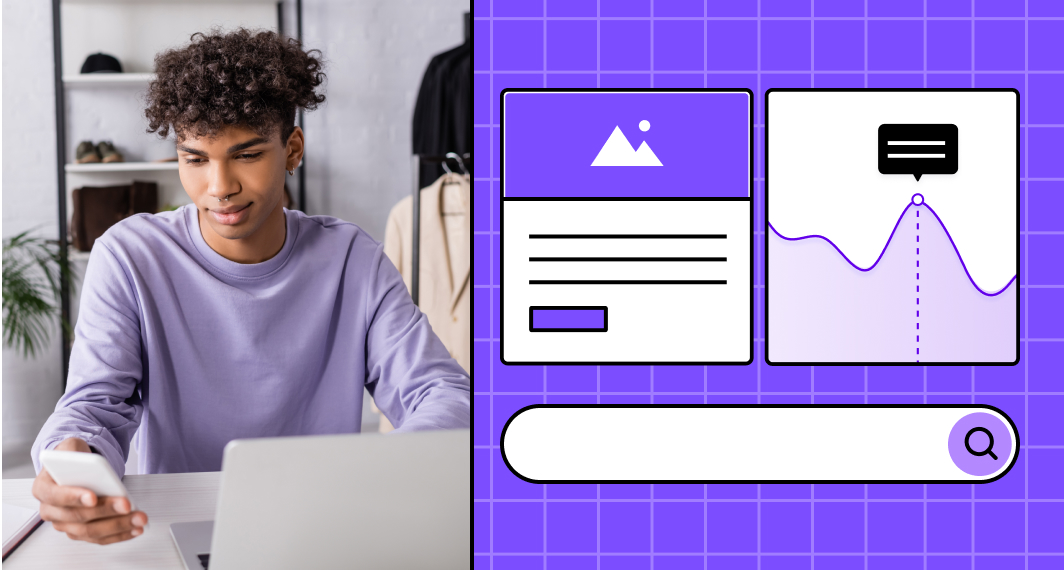What are mobile app stores?
Mobile app stores are digital marketplaces that allow app owners to list and sell their mobile applications and consumers to discover and buy them. The biggest app stores tend to list apps native to particular operating systems (OS) like iOS and Android, whereas multi-platform app stores list several.
How do mobile app stores work?
Here are the main functions of mobile app stores:
App submission
When you've created an app, you have to pay app store fees to submit them. After this, your submission is reviewed by the app store's team to guarantee they satisfy particular guidelines, quality requirements and safety precautions.
Cataloguing and categorisation
Apps that have been approved are divided into categories based on their functionalities and genres. This categorisation makes it easier for you to find the app you're looking to download on your mobile phone.
User interface (UI)
You can access mobile app stores via specific apps pre-installed apps on your device or by downloading the app store app. You can also browse through a variety of apps in the store, read descriptions, view screenshots and read user reviews and ratings before downloading the app you want.
Download and installation
When you discover an app that piques your interest, you can download and install it immediately from the app store. The installation process is managed by the store, which ensures compatibility with your device and operating system version.
Updates and maintenance
App developers distribute updates on a regular basis to address issues, add new features and improve overall performance. These updates are made available via the app store, allowing you to easily keep your apps up to date.
4 key mobile app store benefits
Here are the top benefits of mobile app stores, whether you're listing an app or looking to download one:
1 - Discoverability
These digital storefronts for apps provide mobile users with a one-stop shop for discovering new apps. Thanks to categorisation, recommendation engines and featured areas, properly optimised apps are easy to discover.
2 - Trust and security
App marketplaces are critical in ensuring the security and integrity of the apps that are accessible for download. The review process guarantees that these apps fulfil particular quality and security criteria, lowering the possibility of virus or dangerous software penetrating devices.
3 - Monetization for developers
App developers can monetize apps in a variety of ways, including paid apps, in-app purchases and adverts, among others. The app store handles transactions, which makes it seamless for you to cash in on your software.
4 - User feedback and ratings
Both creators and potential users benefit from user reviews and ratings. Positive feedback can increase an app's visibility, while constructive criticism can help developers improve their products on a regular basis.
Types of mobile app stores
Here are the three main types of mobile app stores:
Platform-specific stores
- Apple App Store - exclusive to Apple's iOS devices and provides a curated selection of apps that adhere to Apple's strict design and quality criteria. Apple App Store allows publication and distribution of iOS apps built for iPhone and iPad devices, Mac apps and Apple Watch apps.
- Google Play Store - has a larger user base, caters to more devices and has a broader selection of apps than the Apple App Store; noted for its adaptability and openness. Google Play Store allows the publication and distribution of Android apps built for Android mobile devices, Android TV, and smart watches built on Wear OS, powered by Google.
Third-party app stores
- Amazon App Store - an alternative to the Google Play Store that's primarily available on Amazon Fire devices, providing a variety of apps and a distinct revenue model
- Samsung Galaxy store - for Galaxy smartphones and focuses on providing consumers with customised suggestions to fully optimise their phones' features
Niche app stores
- SlideME - caters to a wide range of audiences by focusing on independent developers and global reach
- Aptoide - known for its decentralised approach, allowing users to construct their own app stores, giving them more freedom and flexibility
Pricing models
Here are the five main pricing models app stores operate on:
- Free apps - accessible for free, with funding provided by in-app adverts or purchases; also have a larger user base and make cash through optional purchases
- Paid apps - require users to pay a one-time fee to download and use the app; have higher quality standards and frequently include more advanced features
- Freemium apps - free to download but provide in-app purchases for additional features, levels or premium content
- Subscription apps - users pay a monthly or annual charge to gain access to the app's content or features
- Paymium apps - a hybrid of the paid and freemium models, charging an initial price for download while also offering in-app purchases
Get a free app prototype now!
Bring your software to life in under 10 mins. Zero commitments.


 Facebook
Facebook X
X LinkedIn
LinkedIn YouTube
YouTube Instagram
Instagram RSS
RSS


